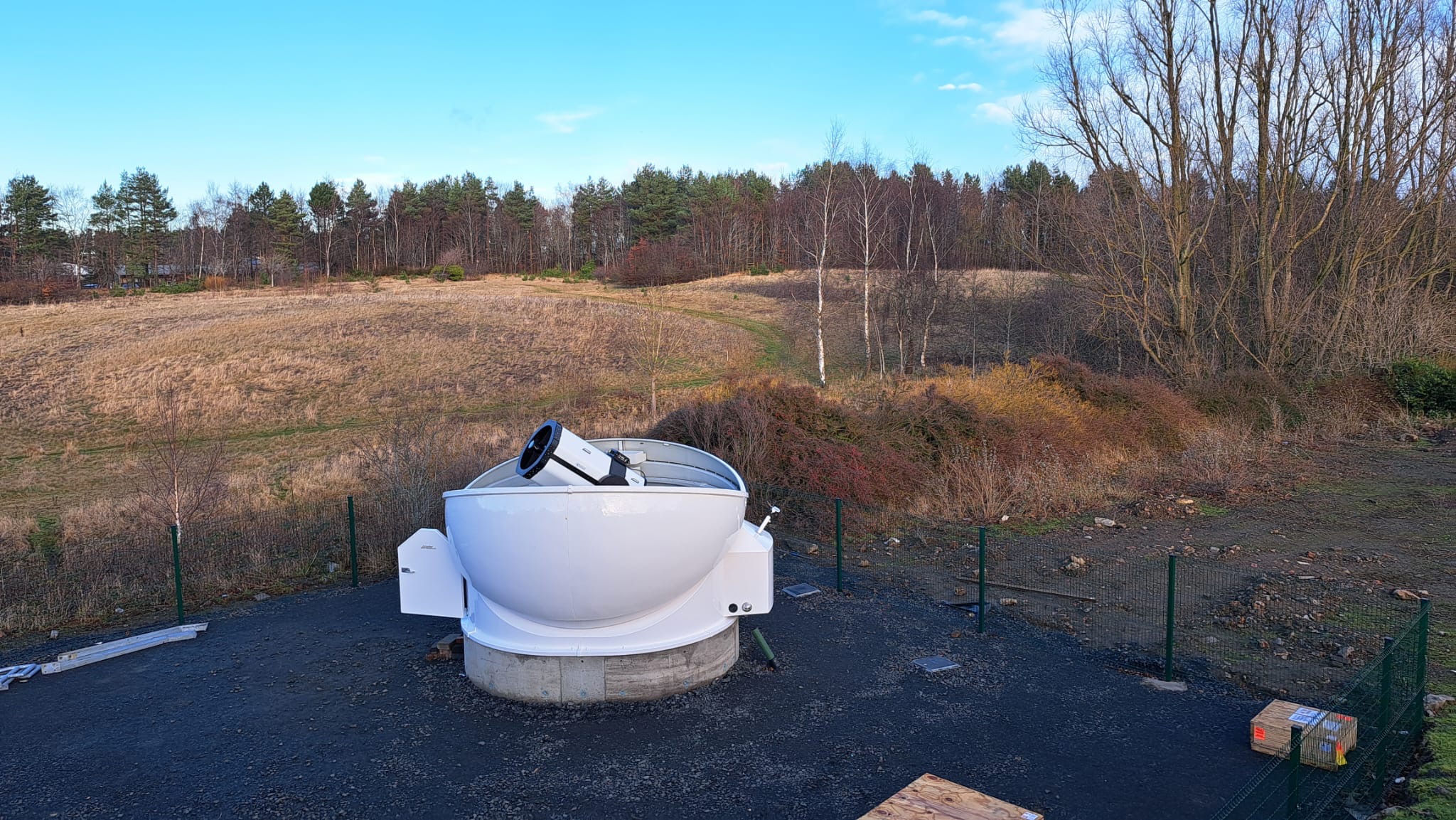Scottish university one step closer to creating ‘unhackable’ internet
Heriot-Watt University has broken ground with pioneering telescope that could help combat cybercriminals.
The new £2.5m ground station, the first of its kind in the UK, will be able to test quantum satellite communications, which could help put an end to cyber-attacks, estimated to cost the UK economy £27bn annually.
Dr Ross Donaldson, project lead from Heriot-Watt University's Institute of Photonics and Quantum Sciences, said: "This facility represents a quantum leap for UK communications security. With cyber threats evolving daily, we urgently need to create networks that are secured by the laws of physics, not by encryption that could be broken by future technologies.”
The Quantum Communications Hub Optical Ground Station (HOGS) uses advanced laser technology to communicate with satellites and will use state-of-the-art single-photon detectors and adaptive optics systems to exchange quantum-encrypted information with orbiting satellites.
Quantum key distribution is a method use to distribute quantum-encryption keys between the sender and the receiver. QKD allows for these keys to be shared securely as any attempt to intercept the key would disturb their quantum state, meaning an attacker cannot steal the key without being caught.
Donaldson continued: “HOGS allows us to research a technique called quantum key distribution between space and the ground, and vice versa. This is about creating encryption keys that cannot be intercepted or hacked without detection.”
The university claims HOGS will test technology which could “become the backbone of an ultra-secure quantum internet within the UK”.
Donaldson added: “For businesses handling sensitive data, the protocols we're developing here could revolutionise how they protect customer information and intellectual property.”
HOGS is connected to the university’s dark-fibre network, meaning the campus will offer a “living laboratory” for scientists and industry to test their quantum networks, before deploying them in the real world. Dark fibre refers to cables that have been installed but are not actively transmitting data.
 HOGS is located at the university's retail park
HOGS is located at the university's retail park
This connection will enable “ground-breaking” quantum experiments, and accelerate progress towards establishing the global quantum networks of the future”, Professor Gerald Buller, Director of the Integrated Quantum Networks Hub (IQN), said.
The future remit of the station is linked to IQN, which is developing scalable, secure quantum communications infrastructure such as quantum memories. Quantum information cannot be amplified as doing so would destroy its quantum state.
Therefore, memories are required to store quantum information without destroying its quantum state.
The facility is part of the Quantum Communications Hub (QCH) project, funded through the UK National Quantum Technologies Programme and is part of a collaborative effort which also involves the Universities of Strathclyde, Bristol and York.
Professor Tim Spiller, director of the QCH, said: “Quantum secure communications will still protect data – for governments, businesses and individuals – in a future, fully quantum-enabled world. We know already that such communications work with optical fibres, but clearly to address data security on a global scale we must add satellite capability. The experiments to be undertaken with HOGS represent a key next step to establishing this capability.”
Besides helping to tackle cybercrime, HOGS will also monitor and track space debris which poses a significant threat to future space missions, as well as pioneer new techniques in high-speed optical communications that could power future 6G networks.
Professor Gillian Murray, deputy principal of business and enterprise at Heriot-Watt University, said: “This facility isn't just an academic research tool, it's an economic catalyst. Scotland's space industry already supports 8,000 jobs and generates £880m annually, but with infrastructure like HOGS we're creating the environment for this to significantly grow.
“For Scottish and UK businesses working in the space sector, HOGS offers access to world-class testing facilities without the multi-million-pound infrastructure investment. Companies developing everything from sensitive cameras to optical transceivers can validate their technologies here before taking them to market.”
He added: “Beyond the immediate economic impact, we're building a skills pipeline that will produce the space workforce of tomorrow. Students from undergraduate to PhD level will gain hands-on experience with technology that doesn't exist anywhere else in Scotland, while our outreach programme will spark interest in Stem subjects among local schoolchildren.”
Holyrood Newsletters
Holyrood provides comprehensive coverage of Scottish politics, offering award-winning reporting and analysis: Subscribe